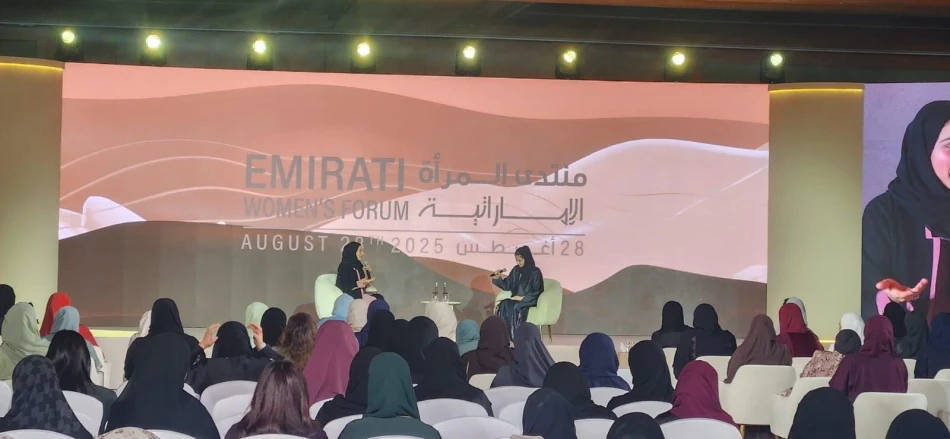
Empowering Women: 70% of Private Sector Employees in Saudi Arabia are Female
UAE Women Drive 70% of Private Sector Emiratization as Workforce Strategy Transforms
The UAE's ambitious Emiratization program is being powered primarily by women, with Emirati females now comprising 70% of the 152,000 UAE nationals working in the private sector. This striking gender split reveals how the country's economic diversification strategy is fundamentally reshaping traditional workforce patterns while positioning women as key drivers of private sector growth.
Women Leading the Economic Transformation
Speaking at the UAE Women's Forum, Shaima Al Awadi, Acting Assistant Undersecretary for Communication and International Relations at the Ministry of Human Resources and Emiratization, highlighted that 107,000 of the 152,000 Emiratis in private sector roles are women. This dominance extends across critical sectors, with women representing 98% of educational staff, 61% of technology positions, and significant portions of medical roles.
The female workforce in the UAE grew by 12% this year, accelerating from 10% growth in the previous year, indicating sustained momentum in women's economic participation.
Strategic Policy Framework Enabling Success
The UAE's success in mobilizing female talent stems from comprehensive policy reforms designed to balance work and family life. The country's labor law now includes expanded leave policies, workplace accommodations for working mothers, and unemployment insurance protections specifically benefiting women.
The government's savings system provides investment returns for female workers, while the Nafis program offers salary support for Emirates in private companies and funds corporate training initiatives. These measures address traditional barriers that historically limited women's private sector participation in the Gulf region.
Breaking Regional Patterns
This development marks a significant departure from conventional Gulf labor market dynamics, where government employment traditionally attracted the majority of nationals. Unlike neighboring countries where Emiratization efforts often struggle with male participation rates, the UAE has successfully leveraged its female population to drive private sector localization.
The concentration of women in technology and medical fields particularly stands out, as these sectors typically show lower female participation rates globally. The UAE's 61% female representation in private sector technology roles contrasts sharply with global averages of around 25-30%.
Economic Implications and Market Impact
For businesses operating in the UAE, this trend presents both opportunities and challenges. Companies can tap into a highly educated female workforce that increasingly views private sector careers as attractive alternatives to government employment. However, organizations must adapt their workplace policies and culture to accommodate this demographic shift.
The heavy reliance on female workers for Emiratization targets also means companies must invest in family-friendly policies, flexible working arrangements, and career development programs tailored to women's needs. This requirement is driving broader workplace modernization across UAE businesses.
Long-term Strategic Positioning
The UAE's approach positions the country as a regional leader in economic gender integration, potentially creating competitive advantages in attracting international businesses seeking diverse, skilled workforces. As global companies increasingly prioritize diversity metrics, the UAE's female-driven private sector could become a significant draw for foreign investment.
This workforce transformation also supports the UAE's Vision 2071 goals of becoming a global hub for talent and innovation. By successfully integrating women into private sector leadership and technical roles, the country is building the human capital foundation necessary for its post-oil economic future.
Most Viewed News

 Sara Khaled
Sara Khaled






